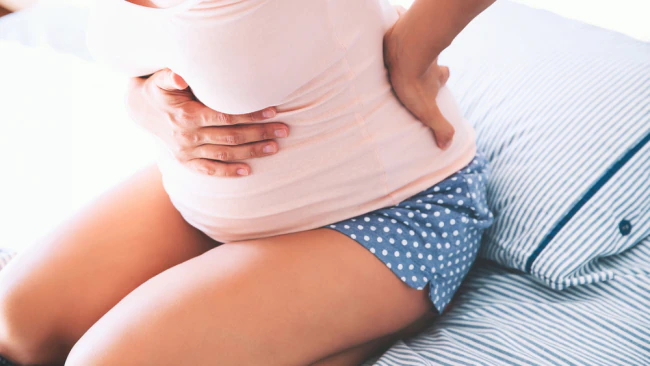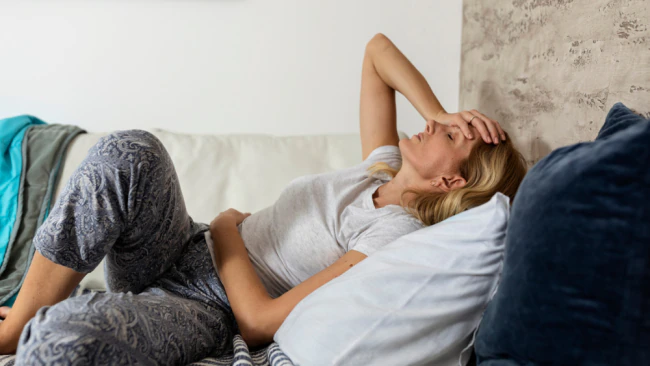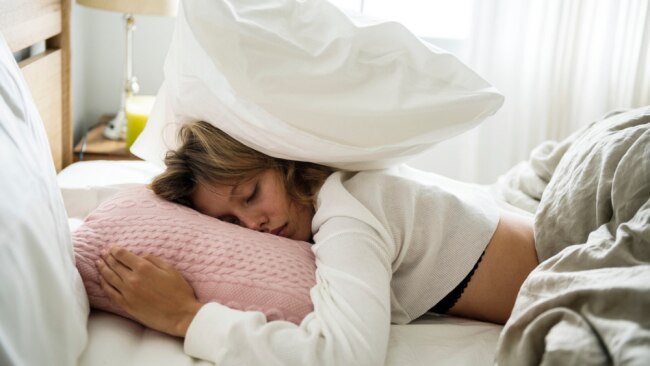Our resident sleep expert, Olivia Arezzolo delves into why women sleep worse than men for the next installment of Sleep Well Wednesdays.
Ladies, unfortunate news. We’re 40% more likely than men to have insomnia, according to clinical research.
While we could go into the societal reasons this may occur – greater responsibilities for children and household life for example, in today’s installment of Sleep Well Wednesdays we’re just going to focus on the inherent, biological factors at play.
Because in an age of equality, even with the greatest intentions to balance such environmental elements, the fact stands: women sleep worse than men.
And here’s why:
#1 PMS

National Sleep Foundation reports that more than 33% of menstruating women experience more disturbed sleep in the weeks preceding and during menses.
Academic research has also found those in the late luteal phase (the days before menses) spend 15 more minutes of the night awake instead of asleep. And if you’re wondering why, this is likely due to fluctuations in oestrogen, LH, progesterone – each of which play a role in thermoregulation.
As keeping cool is pivotal to melatonin secretion, variations in these hormones destabilise our body temperature. Cue sleeping problems.
#2 Pregnancy

Sleeping problems can be attributed to pregnancy too: 94% of women report sleep disturbances throughout pregnancy.
This is driven by:
- Hormonal fluctuations: as in menstruation, evidence shows variations in key hormones such as oestrogen and progesterone lead to problematic sleep.
- Increased pressure on the bladder: means pregnant women more frequently need to use the bathroom through the night.
- Discomfort: backaches can lead to tossing and turning, and a growing belly may displace the usual sleeping position.
- Muscles: cramping and restless legs.
- Anxiety: normal for many pregnant women.
#3 Menopause

Menopause is also accompanied with a sharp rise in sleep issues: doubling from 30% pre-menopause to 60% peri-post-menopause.
This is in part due to a decline of oestrogen (E2) levels, as mentioned, this hormone which typically regulates core body temperature, keeping ladies cool instead of overheating. This is exactly why hot flashes occur for 90% of menopausal women, which may interrupt sleep.
Another factor perpetuating sleep problems during menopause is the natural dip in progesterone. Studies have shown that progesterone supports the synthesis of calming hormone GABA, which indirectly means that progesterone also deepens sleep and reduces daytime anxiety.
Thus, its decline can account for light, unrefreshing sleep, anxiety and higher stress; cue sleeplessness.
A third consideration is the development of depression – 1 in every 5 menopausal women will suffer full blown depression, placing them at risk for problematic sleep.
And, in case you were wondering, what about surgical menopause or hormone therapy?
- If menopause is surgical, the chances of disordered sleep increases. Studies show insomnia is more common, total sleep time is less, and there is a 27% greater likelihood of sleep apnoea.
- Studies show women with hormone therapy report fewer sleep complaints, improved sleep quality and less insomnia symptoms.
With PMS, Pregnancy and Menopause, we need to remember that these are just the biological factors, and don’t include the multitude of lifestyle factors that get in the way of good sleep.
Needless to say, there’s still much to explore on the topic in future SWW articles ladies – much to explore indeed.

+ show Comments
- Hide Comments
add a comment